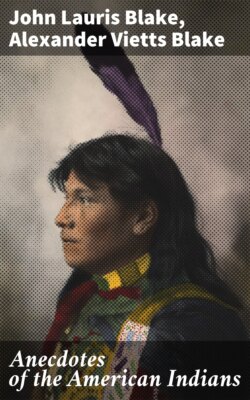Читать книгу Anecdotes of the American Indians - John Lauris Blake - Страница 21
На сайте Литреса книга снята с продажи.
A CHOCTAW COUNCIL.
ОглавлениеTable of Contents
The conduct of the government of the United States towards the Indian tribes, however politic it may seem, is certainly not based upon the Christian precept “to do unto others as we would that they should do unto us.” All our proceedings towards them have tended to their gradual extirpation from the land of their birth. Our wars, our treaties, our purchases of land, our system of intercourse with them, have all the same end. The following extract will show how well the Indians understand this.
The reader will recollect, that it has become the settled policy of the United States to remove the several tribes of Indians to a country west of the Mississippi. In order to discuss and determine on this subject, in 1830 the Choctaw Indians held a council, in which it was resolved to sell off their lands to the United States, for one million of dollars, and to remove without the States, provided Government would give to each man a section of land, in fee simple, west of the Mississippi, and be at the expense of transporting the tribe to their place of destination, and of supporting them twelve months after their arrival. The council sat four days, and the following is a short sketch of their proceedings:—
The National Council was organized in the afternoon of the 15th of March. This was a juncture of peculiar interest. To see the rulers of a people, preparing to decide upon a course in which their posterity, to the latest generation, was deeply affected, could not but produce a deep and universal solemnity, and this interest was greatly increased by the bitter tears shed by some of the females present. The voice of sorrow is always eloquent; but, at such a season, never could the female voice speak more forcibly the sympathies of our nature. Who could avoid exclaiming, ‘O, my native country! Land of my fathers, I must leave thee!’
The Chief presented them with a concise view of the difficulties of their situation, and the alternatives which were before them, and the sad necessity of immediately making their selection. It was at the intimation, that a removal was one of the alternatives, that the women wept.
The Chief was followed by an old Captain in the nation, who, in brief simplicity, recounted his sufferings as a warrior and captain, in fighting for his White brothers, under General Jackson. He named several places where he had fought, and seen the Choctaws bleed and die. At that time, little did he think that his White brothers would ever make it necessary for him, in his old age, to leave his country, and the bones of his father. He would greatly prefer giving up his country, than submit to laws, the nature of which he could not learn, and among a people, the wicked part of whom would harass and ruin them. He expressed a belief that the President would give them a good treaty; and, if he would do so, aged as he was, he would give his voice to go to their lands west of the Mississippi—and, moreover, expressed his belief, that the Great Father above, would go with them, and bless them in their new home.
A Captain of the eastern part of the nation, next came forward. He appeared many years in advance of the first speaker. His white head, palsied limbs, and tremulous voice, made him an object of deepest interest. He was said to have been a warrior under General Wayne. He recounted some of the scenes of his past life, and the hopes which had borne him onward in his course;—he touched upon the disappointment that had clouded his setting sun; but, awakening, as if by supernatural power, he spoke boldly of his confidence in his Great Father above, and expressed his full assurance, that He would accompany his nation, and bless them. The discussion continued until a late hour of the fourth day, when the vote was taken, and found in favour of emigration.
